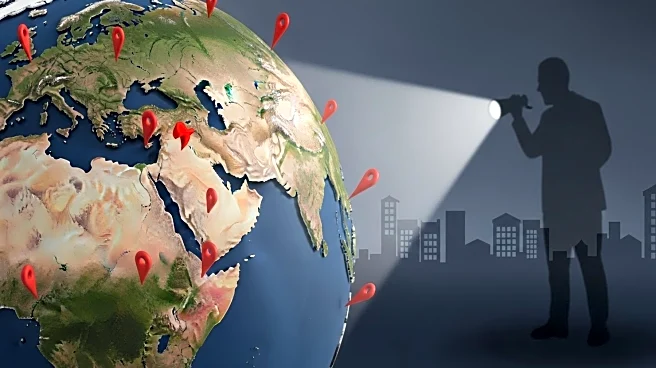What's Happening?
The United Nations has expanded its blacklist to include 68 additional companies from 11 countries, citing their complicity in violating Palestinian human rights through business ties to Israeli settlements in the occupied West Bank. The list now includes 158 companies, with the majority being Israeli. The UN's Human Rights Council aims to name and shame businesses involved in activities that support the settlements, which are considered illegal under international law. The blacklist includes companies providing construction materials, security, travel, and financial services. Israel has rejected the publication, calling it an attempt to unfairly target businesses.
Why It's Important?
The expansion of the UN blacklist underscores ongoing international scrutiny of business activities in Israeli settlements, which are a contentious issue in the Israeli-Palestinian conflict. The inclusion of companies from various countries highlights the global nature of business operations in the region. This development may impact the reputations and operations of listed companies, as well as influence international diplomatic relations. The blacklist serves as a tool for advocacy groups and governments to pressure companies to reconsider their involvement in the settlements.
What's Next?
The UN's Human Rights Council may continue to assess additional companies for inclusion on the blacklist, potentially increasing pressure on businesses operating in Israeli settlements. The publication of the list could lead to further diplomatic tensions between Israel and countries whose companies are listed. Companies may face calls to disengage from activities in the settlements, and some may choose to reassess their business strategies in response to international criticism.
Beyond the Headlines
The blacklist reflects broader debates about corporate responsibility and human rights in conflict zones. It raises ethical questions about the role of businesses in contributing to or mitigating human rights abuses. The list also highlights the complexities of international law and the challenges of enforcing compliance in politically sensitive areas. The ongoing conflict in Gaza and the West Bank continues to shape international perceptions and policies regarding the Israeli-Palestinian issue.









